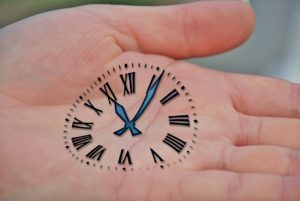When I saw this question promoting a talk from an experienced tutor at the well-regarded Northern School of Permaculture, I was intrigued.
What is the block indeed?? Great – here I will find the answer!
So when Angus Soutar asked this question of the 25 or so of us who gathered in the back room of the Briton’s Protection pub in Manchester, a very suitable venue with it’s connections to the Peterloo Massacre, I was ready with my replies..
‘Exploitative capitalist economics’, ‘inadequate government policies’, ‘fickle politicians’, ‘a broken voting system’…What should I pick first?
So I was very surprised when people volunteered very different answers to those on my mind…
‘I have no time’.
‘I have no energy’.
‘I have no get up and go’.
Unlike me it seemed, everyone else had started ‘at home’.
I felt very humbled.
It was a salutary reminder of what beethechangeblog is all about – I was looking everywhere for the answer, but me.
So given there was SO much collective wisdom in the group discussion facilitated by Angus, I’ve curated it into a handy list, presented here.
FIVE TOP TIPS FOR MAKING MORE TIME
- SIT DOWN AND FIND IT
 It sounds easy – why is it so hard?
It sounds easy – why is it so hard?
It seems for many of us – it’s because we aren’t approaching it deliberately or systematically enough. So to find it, we need to treat it like any other ‘resource’.
Simplify your life; ‘Run an audit of your spending and cut out things you don’t need, so you can earn less, which means you can work less, and have more of time of your own to spend on projects you care about’
Carry out intense reflection: ‘Carve out small chunks of time to do this – ask for help from friends, to cover for your commitments – you’d be surprised how far people will go to support you when they see why you want to do it’
Be bored! – ‘When was the last time you were bored or switched off?’ ‘Games like Candy Crush are an escape but they stop us thinking, reflecting, or ideas popping into our head (never mind doing something more productive!)’
Chores – use them! ‘I have loads of ideas washing up. I save the dishes til I have about 45 minutes worth – and I always have an idea! So much so I couldn’t get a dishwasher now – I’d have no ideas!’
Rituals – make space for them. Traditionally rituals were really important in human culture to help with physical survival – but they’re still important for our spiritual and emotional wellbeing – like Fika in Swedish culture. ‘But they’re getting swamped by modern life. Don’t let that happen!’
What are yours?
2. QUANTIFY THE TIME YOU NEED

It seemed that a really good way to both find more time for yourself and to attract others to help you with projects, is to package time up up into manageable chunks, so it’s less intimidating.
‘Otherwise people just have this abstract idea of time which can feel quite like a stick to be beaten with as in – ‘I must do good things!’ – but they have no way to easily apply that to their busy lives’.
People shared ways they have found to do that at their community groups.
‘We ask for people to come and give us chunks of time – from as little as 10 mins. And we always stick to it so people know exactly when they can leave’.
‘We hold an ‘action hour’ – where we get lots of people to turn up – they know they will meet others and more often that not whatever needed doing is finished in half an hour’
It’s a great way to break big tasks down and get them done more easily.
‘For instance we had 5,000 bulbs to plant – that sounds so ‘big’ – so we did the maths and broke it down – and put out a request that said – ‘if two people turn up this will take them five, long hours, but if 40 people turn up its just 15 minutes each!’
(I loved that one not just because it breaks the task down but crucially it shows people how they will be making other people’s lives easier, which can be a real winner in spurring people to action).
One person also shared how they used that approach in their own life.
‘I was getting overwhelmed with all the things I wanted to do / had agreed to – so I added up all the free hours in the week – ie after I’d set aside family time, work, sleep etc – and I decided I had five hours a week – and that’s what I had to spare. It made it much easier to know what I could give’.
3. MAKE THE TIME YOU DO SPEND WORK FOR YOU

Some had quite practical tools for ensuring this – one woman talked about using the concept of ROI (Return on Investment) – more traditionally associated with corporate investment -to her own time.
‘I use ‘ROTI – Return on Time Invested’ – where I calculate what I’m putting in versus what I’m getting out’.
Some of the things one gets out will be ‘obvious’ like working with new people and learning new skills, but others may be less so, such as new ways of co-operating and collaborating away from ‘work’ environment of hierarchies and bosses, which can demand more skillful ways of communicating.
It seemed to me this also explained why people come and go from groups; once they’ve learnt some of these things perhaps, even unconsciously, it becomes time to move on and they drift away.
Others talked about how they needed to feel a connection between the mission of the group and their personal contribution:
‘It’s really important to know what value I can bring to things’
‘I want to know what people appreciate me for – when one is giving time for free, positive feedback is really important to help keep one going’
Angus went further than this and encouraged people to be pretty single-minded about it – because that would not only be best for them – but also best for the project or group.
Ask the selfish question – ‘what’s In It for me? Am I enjoying this?
‘I suggest you concentrate on exercising the skills you really enjoy. You also need to feel other people appreciate you for what you are bringing. And when you have all of that, it usually means you’ll feel you are in the right place’
A couple of people agreed that this meant focusing on one big project than lots of smaller ones.
‘I realised I had to pick ‘my thing’ – good people care about lots of good things – but you can get spread to thin – so pick ‘your one thing’ and use your spare hours for that’
To do that, it seems one needs to learn not just the joy of ‘Saying No’ but also the ‘Joy of Missing Out’ (JOMO!).
However, others in the room seemed keen and able to run multiple projects.
‘Perhaps there is a busy-ness muscle – if you start with one thing, then see how it grows – you might be able to take on others. After all – there is something in the saying ‘if you want something done ask a busy person’. Perhaps they are just more practiced at it or motivated by it?’.
But another quoted a line from Barefoot Economist Manfred Max-Neef: ‘Idleness is the mother of many virtues’ – if we leave no time and space for anything then we become less creative.
It seems the key is finding what is right for you. And to do that one needs to….
4. ‘KNOW THYSELF’
 It seems only possible to know the time you’re spending is bringing value to you, if you know your own values. So spending a bit of time figuring that out will be time well spent.
It seems only possible to know the time you’re spending is bringing value to you, if you know your own values. So spending a bit of time figuring that out will be time well spent.
One person reminded the group that as humans there are certain things we have ‘in our nature’ and that environmental activism offered a way to reconnect with those.
‘We forget we’re animals – we evolved IN the landscape, and we thrive when we live according to our evolved characteristics – which is to live in small communities, to live outside and to live using our bodies, and using our hands to make things and our legs to move us’
(This really chimed with a book I’ve been reading called ‘Lost Connections’ in which author Johann Hari argues convincingly and with reams of academic evidence as well as his own experience, that depression is merely a symptom of this lost connection to our inherent ‘homo sapien’ nature and environs.)
As one person in the pub put it:
‘If you put a bird in a cage – you can see it’s sad. We cannot see that we’re in a cage, we just know we’re sad!’
Another person put it like this: ‘growing vegetables – is one of the most subversive things you can do!’
It seems that slowly perhaps the world is waking up to this.
Bhutan famously has a Happiness Index as its key performance measure not Gross Domestic Product (which effectively mandates resources to be destroyed/extracted in the name of economic growth because they have no monetary value when they are untouched).
And New Zealand has just published its first well-being budget which puts quantifiable value on things like the environment and cultural identity.
5. START SMALL

It seemed that everyone in the room agreed that small is not just beautiful – but necessary.
‘It makes things manageable, it creates bubbles of change that can link up to others and grow. The butterfly effect’.
‘Also, campaigning inside the political process is necessary – but it is slow. We don’t have time’.
I see evidence of this every day – for instance all the places that seem to be taking a lead on new ways to solve our climate and environmental crisis in the UK are relatively small towns – like Stroud or Totnes, Kendal or Machynlleth – perhaps because the relevant parties are few enough to fit round one table.
‘We assume we need powers to change things. That it starts from the top.
But people getting together is what leads to change. We need to take back control!’
FURTHER READING
If you liked some of the ideas here, further reading suggested by the group include:
– The Story of Stuff (video) ‘exposes the capitalist myth of a linear production system on a finite planet and the connection between it and most of our environmental and social issues’
– First Follower (video) – hilarious, three-minute video on ‘how to build a movement’ using clip of random guys dancing at a festival to prove the theory that finding a like-mind to team up with is crucial to any new idea
– The Four Agreements (book) (it’s only a short book but the TLDR: 1. be impeccable with your word, 2. don’t take anything personally, 3. don’t make assumptions, 4. always do your best)
– Why We Sleep (book) – ‘clearly elucidates the extent of the damage wrought by our collective ignorance of the importance and complexity of sleep’s role in our lives, and the difficulty encountered by many of us in getting any’.
– Why did Air B&B succeed? (article) – why it wasn’t just cool design, cheaper alternatives and unusual locations that made it so successful, it was a deeper connection to place and people
What is Permaculture?
 As Angus told us that evening: ‘Gardening is not just what we ‘do’, it is our philosophy – whether we take a piece of land, or a community project; we do not go in and trample – we go and and try to reshape in a way that means it meets our needs as humans but also that of the planet’.
As Angus told us that evening: ‘Gardening is not just what we ‘do’, it is our philosophy – whether we take a piece of land, or a community project; we do not go in and trample – we go and and try to reshape in a way that means it meets our needs as humans but also that of the planet’.
If you want to know more about Permaculture, Angus and other colleagues run a Permaculture Design Course (PDC) at various locations and durations across the region, including one starting in Didsbury, Manchester in October.
The course blurb says: ‘Ecological garden design, contrary to common belief, is not primarily about planting schemes, wildlife gardening expertise, horticultural knowledge and ornamental features. It’s foremost about understanding the relationship between what you want and need from a green space and how to best design and deliver it within site, climate, time and budget constraints‘.
Green Drinks
Angus’s talk was hosted by Green Drinks Manchester, which holds monthly gatherings in a relaxed setting for like-minded people to swap ideas and enjoy being with other environmentally-aware folk.
Green Drinks is a worldwide concept happening in more than 550 cities.


